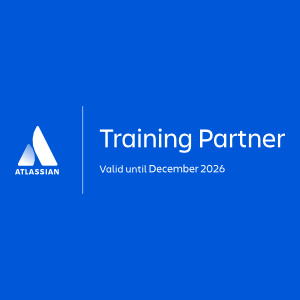Revolutionizing PayPal: The Largest Atlassian Cloud Migration in History
PayPal, a global leader in online payments, faced significant challenges with their existing infrastructure, which…

Learn agile fundamentals and essential Jira skills in an expert-led course with real-time, organization-specific Q&A. Perfect for beginners, with no pre-work required, and applicable to both Cloud and Data Center users.
Standard Delivery: 8 hours of instruction
Group (3+): $550 USD*
GSA: $434.35 USD*

An expert instructor will teach your team how to become more effective and efficient by fusing the principles of agile processes with Jira skills and practices.
Your team will learn about kanban and scrum and Jira essentials like searching, JQL, epics, and more.
Throughout the course, your team will be able to ask organization-specific questions in real-time and get the answers they need. The team learning environment delivers engagement, retention, and collaboration, extending the benefits of an instructor-led course beyond instruction time.
This course is designed for anyone new to Jira or agile principles and methodologies and applies to Cloud and Data Center users.
There is no suggested pre-work for this course.
Have a group of 5 or more students? Cprime also provides specialist private training with exclusive discounts for tailored, high-impact learning.

1. Agile & Jira Foundations
2. Visualizing and Managing Work
3. Enriching Work Items
4. Kanban Method
5. Scrum Method
6. Searching and Filtering
7. Working with Epics
8. Dashboards and Reporting
9. Lean and Agile Principles
10. Capstone & Integration
The course is designed for individuals or teams who are new to Jira and agile methodologies. No prior experience with Jira or agile is required, and there is no pre-work needed before attending. It’s ideal for beginners looking to understand both the tool and the mindset behind agile practices.
| Delivery | Date | Price | Reserve your seat |
|---|---|---|---|
| Live, Online Training |
Apr 23rd - 23rd, 2026 9:00 AM - 5:00 PM EDT |
$595 (USD) | Register |
| Live, Online Training |
May 18th - 18th, 2026 4:00 AM - 12:00 PM EDT |
$595 (USD) | Register |
| Live, Online Training |
Jul 30th - 30th, 2026 10:00 AM - 6:00 PM EDT |
$595 (USD) | Register |
| Live, Online Training |
Sep 18th - 18th, 2026 4:00 AM - 12:00 PM EDT |
$595 (USD) | Register |
| Live, Online Training |
Oct 15th - 15th, 2026 10:00 AM - 6:00 PM EDT |
$595 (USD) | Register |
| Live, Online Training |
Nov 16th - 16th, 2026 4:00 AM - 12:00 PM EST |
$595 (USD) | Register |